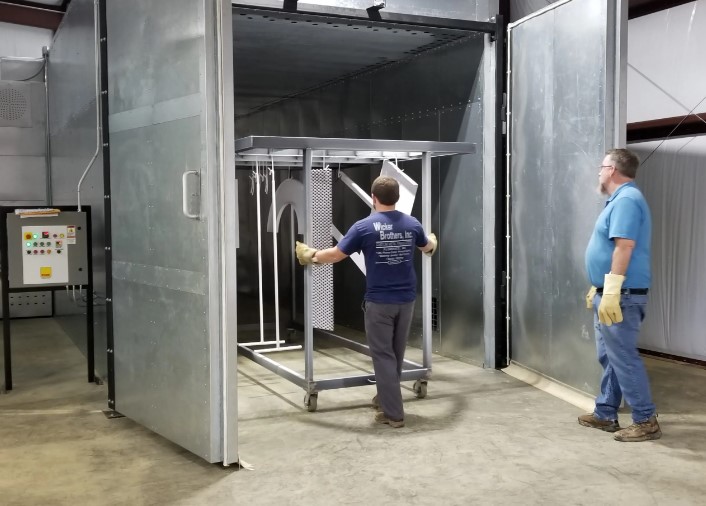
Industrial Oven Safety: Preventing Accidents and Ensuring Compliance
Ensuring the safety and compliance of industrial ovens, especially powder coating ovens, is not just a regulatory mandate but a fundamental necessity to safeguard the well-being of employees and the efficiency of operations. This blog post aims to delve into the essential aspects of industrial oven safety, highlighting regulatory compliance, common accidents, safety protocols, training, and maintenance procedures.
Regulatory Compliance for Powder Coating Ovens
When it comes to powder coating ovens, adhering to regulatory standards is paramount. These ovens operate at high temperatures required for curing powder coatings, making compliance not just about legalities but ensuring a safe working environment. Regulatory bodies such as OSHA (Occupational Safety and Health Administration) and NFPA (National Fire Protection Association) set forth stringent guidelines. Compliance ensures that your operations are not only up to code but also that you’re mitigating risks associated with high-temperature operations.
Common Accidents and Hazards in Industrial Oven Operations
Industrial ovens, by their very nature, pose a variety of hazards. From high-temperature burns to the risk of fires, understanding these dangers is the first step in prevention. Common accidents include thermal burns from direct contact with hot surfaces, inhalation of toxic fumes, especially in powder coating operations, and fire hazards due to combustible materials. Recognizing these hazards allows for the implementation of targeted safety measures.
Safety Protocols and Best Practices for Industrial Oven Use
Implementing safety protocols and best practices is crucial in mitigating risks. This involves establishing clear guidelines for operation, including temperature controls, loading and unloading procedures, and emergency measures. Industrial ovens should be equipped with failsafe mechanisms and safety interlocks to prevent over-temperature conditions and unauthorized access. Regular safety drills and the use of personal protective equipment (PPE) also play a vital role in ensuring a safe working environment.
Training and Education for Oven Operators
A well-informed operator is your first line of defense against accidents. Comprehensive training and education programs are indispensable, equipping personnel with the knowledge to operate ovens safely and respond effectively in case of emergencies. Training should cover the full spectrum of oven operation, including start-up and shut-down procedures, emergency protocols, and the proper use of PPE. It’s also essential to foster a culture of safety where employees feel empowered to report potential hazards.
Maintenance and Inspection Procedures for Industrial Ovens
Regular maintenance and inspection are critical to the safe operation of industrial ovens. These procedures not only ensure that the ovens are functioning optimally but also help in identifying potential issues before they escalate into major hazards. Maintenance checks should include inspecting electrical components, ensuring thermal insulation is intact, and verifying that ventilation systems are working correctly. Moreover, a well-documented maintenance log helps in tracking the oven’s condition and compliance with safety standards.
In conclusion, the safety and compliance of industrial ovens are multifaceted issues that require diligent attention to regulatory standards, awareness of potential hazards, the implementation of best practices, comprehensive training, and regular maintenance. By focusing on these critical areas, organizations can significantly reduce the risk of accidents and ensure a safe, compliant operation. Remember, safety in industrial oven operations is not just a regulatory requirement but a moral obligation to protect those who operate them.
